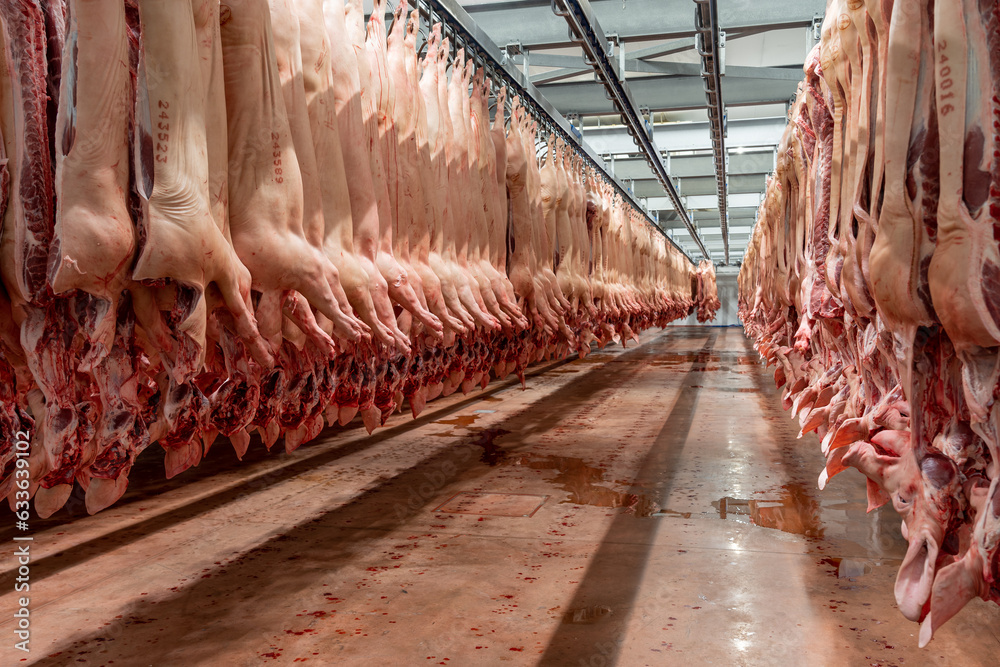The Food Standards Agency has decided to retain the small abattoir discount, in a significant boost to the sector and farmers who use local abattoirs.
The agency had been considering removing the discount, which has been in place for many years abd covers up to 90% of charges for smaller abattoirs, prompting a big backlash from the industry.
The Association of Independent Meat Suppliers estimated that without the discount, 40% of smaller abattoirs would have to close.
But following the agency’s latest board meeting, its chair, Susan Jebb, said: “Our vital food safety and animal welfare checks, which are required by law, play a crucial role in protecting public health and supporting exports. For many years we’ve provided support for abattoirs via a discount on our charges, which we’re currently evaluating.
“Evidence presented to the board, gathered through extensive engagement and economic analysis, showed that smaller business face a disproportionately greater cost of regulation and the importance of the discount to their viability. The board acknowledged the importance of continued support for small and some medium-sized abattoirs in the interests of consumers, businesses, and the wider rural economy.”
She said the board discussed how this support could also be targeted to recognise the importance of other factors, including compliance to standards, animal welfare and innovation and has asked officials to continue to engage with stakeholders to develop proposals for a potential new scheme.
“We will revisit this in a future Board meeting to determine our final advice to ministers, who will ultimately take a decision on the future of any support.”
More secure
Campaigners for small abattoirs welcomed the reprieve. The Soil Association said the future of the 47 remaining small abattoirs in England and Wales appears more secure following a significant decision.
It pointed out that, due to charges being per hour of vet time rather than based on throughput, larger operators have a much better economy of scale, while the cost for smaller operators per animal is nine times greater. It is therefore a significant amount of money, and without the discount smaller abattoirs would have to close or pass costs on to customers, it said.
Soil Association organic sector development advisor Adrian Steele said: “We welcome today’s decision by the FSA board and its recommendation to the Defra minister that the Small Abattoir Discount is essential to allow small scale and organic farmers to connect with local customers and to support a diversity of livestock, including rare breeds, and higher quality grade fresh meat.
“For the first time the FSA has recognised the valuable role that small abattoirs play in the rural economy and in local communities.”
The Sustainable Food Trust’s head of policy and campaigns Megan Perry said the discount was ‘absolutely critical to the continued viability of these businesses’.
“The FSA’s acknowledgement of the importance of smaller abattoir services was welcomed and their efforts to listen to industry was appreciated.
“Assuming the Minister agrees with this proposal, the next stage will be crucial and industry must be closely consulted about what form the discount should take and how it should be applied going forward.
“Any removal of the discount from larger abattoirs needs to be done carefully and in conversation with industry, with full understanding of any risk or impact the removal might have given that abattoirs of all sizes across the UK are important for overall food security.”
RBST chief executive Christopher Price said: “A thriving network of small, local abattoirs, capable of handling low volumes and a diverse range of breeds, is fundamental to a sustainable and resilient livestock sector. We are therefore relieved and delighted that the Food Standards Agency (FSA) Board has agreed to retain the discount on official controls charges for smaller abattoirs.”
Survey findings
A recent survey by the Sustainable Food Trust in collaboration with the Soil Association and Rare Breeds Survival Trust of 850 UK farmers who use abattoirs found that a third had already seen the abattoir they were using close down in the past five years, and if their current abattoir were to close, 43% said they would no longer sell meat locally, and 29% would have to close their business.
The survey also found that if abattoir charges increased by 10%, a third said they would have to pass this cost to consumers, a quarter would absorb the cost reducing already tight margins, and 11% would seriously consider the overall viability of their business and consider closure.




